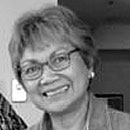June 1, 2025 – The annual CFNet Outstanding Filipinos in Canada awards are presented in June to celebrate Filipino Heritage month and to honor Filipinos in Canada who have not only succeeded in their respective fields of endeavor but have also helped or influenced the Filipino community and Canadians in general while contributing to Canada’s multiculturalism, progress and stature in the world.
The OFC awardees for this year were chosen by the CFNet Editorial Board from the many outstanding Filipinos who had been featured on its online biweekly in the past nine years of its publication.
Melissa Remulla Briones
 When one immigrates in mid-career, one expects to bid one’s old career farewell. Usually. But not Melissa Remulla-Briones who faced that particular crossroads when she and her family moved to Canada in 2011, to become “citizens of the world.” Remulla-Briones shared with CFNet. “I do not know why or how but I wanted to be abroad. I wanted to see if I could make it, to see if it is really better out here.”
When one immigrates in mid-career, one expects to bid one’s old career farewell. Usually. But not Melissa Remulla-Briones who faced that particular crossroads when she and her family moved to Canada in 2011, to become “citizens of the world.” Remulla-Briones shared with CFNet. “I do not know why or how but I wanted to be abroad. I wanted to see if I could make it, to see if it is really better out here.”
Remulla-Briones graduated from the University of the Philippines (UP) College of Mass Communication with a major in broadcast journalism. She then worked for the ABS-CBN network as an executive producer for Star Magic, the network’s talent management department. Later on, Remulla-Briones felt she’s had “too much showbiz” and thought she needed some form of challenge. So back to UP she went and completed a law degree there. Upon graduating from law school, Remulla-Briones practiced law at a legal firm and a real estate developer for a while until she found herself back at ABS-CBN as its legal counsel.
When the family decided to uproot and move to Canada, Remulla-Briones mistakenly thought she could bring her legal experience and continue doing that on arrival in Canada. She reveals with CFNet, “I thought my legal background would easily translate to employment in that field. I was wrong. No law firm would give me the time of day.”
Remulla-Briones again went back to the one place that enabled her to take the next level up – she went back to school. Under a scholarship, Remulla-Briones graduated with a diploma in human resources from Ashton College in 2014. Soon after, she worked as legal office and human resources manager for a vitamin and health supplement manufacturer based in Richmond, BC.
Not wanting to let go of a legal career, Remulla-Briones continued to challenge the Federation of Law Societies of Canada’s National Committee on Accreditation exams, writing a total of eight exams and finally receiving accreditation in November 2017.
“I started articling at Lonsdale Law in January 2018,” Remulla-Briones tells CFNet. “In between, I took a professional legal training course and took the bar exams in August 2018.” She successfully passed the bar and completed her one-year articling requirement in January 2019. “The day after I took my oath, I started Northam Law Corporation.”
Northam Law in Vancouver is an in-house counsel boutique law firm that offers legal and human resource-related services. It is located at 2281 Burrard in Vancouver.
Remulla-Briones explains the range of services Northam Law offers. “While my main practice is business law, part of it includes family law, wills and estates and conveyancing. On the HR part, aside from having a Chartered Professional in Human Resource designation, I develop employee handbooks, give business development coaching and training in marketing and succession training.”
Remulla-Briones also offers culture strategies and solutions that bring an atmosphere of inclusion and diversity in an office culture, for example. Referring to “Filipino-ness”, she notes that Filipino workers “are easily trained, get along well with people from other cultures and, if they see that their employer takes care of them, they will give back in equal measure.” She has experienced these strengths first-hand in her years of experience in human resource management.
This wife and mother of two remains actively involved in the Canadian Filipino community through the UP Alumni Association of BC, the Vancouver Asian Heritage Month Society and other community groups. Her advice to Filipino professionals who want to practice their competencies in Canada? “Just do it, start the process and before you know it, they are done.” She underscores that hard work is a must and stress is almost guaranteed but qualifying to gain accreditation is only temporary. “With focus and determination, and with the support of family, anything is possible.”
Alden Habacon (1974-2024)
 The passing of Canadian Filipino diversity advocate Alden Habacon, on December 2, 2024 at age 50 was a bitter blow for the Filipino community in Canada. “Too young and so bright with so much promise,” was their collective lament on hearing the sad news.
The passing of Canadian Filipino diversity advocate Alden Habacon, on December 2, 2024 at age 50 was a bitter blow for the Filipino community in Canada. “Too young and so bright with so much promise,” was their collective lament on hearing the sad news.
In its tribute to Habacon, Canadian Filipino Net reprinted on its December 15th edition an article by CFNet staff Emmy Buccat published in Living Today Magazine’s March 2011 issue where Habacon was featured as an emerging leader along with other young movers and shakers in the Canadian Filipino community.
In this article by Buccat, Habacon was quoted as searching for his real, Asian palpable identity – an identity beyond ethnicity.
“When I was young, I always struggle about wearing my Asian identity everywhere I went. I was born in the Philippines but I grew up in Regina. I no longer have an accent. My understanding of Philippine language, history and culture is quite limited. So how Asian am I really to be saying that I am Asian-Canadian?” Habacon mused.
“We are not really defined by our ancestry anymore. We are more of a collection of cultural things that we do or the cultural spaces that we occupy,” said Habacon who started as a volunteer visual arts editor of a Vancouver-based magazine Ricepaper.
The Simon Fraser University fine arts graduate eventually established Schema Magazine, an online magazine platform that reflects the perspective of second-generation Canadians. His thoughts on being a “cultural navigator” for a new Canadian mainstream with the ability to effortlessly interface with a complex web of mixed cultures actually paved the way for him to become some sort of a diversity guru.
“My work at Schema about the new concept of cultural identity got me into the radar of the Canadian Broadcasting Corporation (CBC) television. They initially hired me as a consultant -- then it became a part time job, which turned into a full time job eventually evolving into a role as manager for diversity initiatives,” Habacon said.
For five years, he worked on CBC's development and implementation of around 300 initiatives reflecting Canada's diversity through programming and hiring activities.
“The culture change that I was trying to initiate is for management to own and embrace my file so much that I could go and become redundant. My initial thought was if in five years, I’m still at CBC, I should quit because I wasn’t effective. I would have been just an administrator not a change agent,”he decided.
In December 2010, Habacon was appointed director of intercultural understanding strategy development at the University of British Columbia (UBC) to help develop and lead the early implementation of the university’s commitment to intercultural understanding.
“In broad strokes, what we are hoping to do is to move UBC from being a very successful multicultural campus to becoming a successful intercultural campus,” Habacon said.
According to him multiculturalism is making sure that an ethnic community can preserve its language and culture but, he emphasized, the ability to create, weave or connect different cultures together is interculturalism.
“Often, when people say I am so proud of Canada’s multiculturalism, I think what they actually meant is Canada’s interculturalism. We haven’t been using this term. That is why I started using multiculturalism 2.0 as the evolution of multiculturalism beyond ethnicity, beyond just celebrating traditions, culture or dance. It does not mean that the culture is going to be diluted, it just means we are creating something new and innovative,” Habacon explained.
Habacon was also executive director of the Laurier Institution, a national non-profit organization committed to the study of Canadian diversity from its economic benefits to its social implications.
“If you are from the Philippines, you tend to associate or go to the Filipino community which absolutely makes sense. Initially, it is an incubator but if it grows to become an ethnic clique then a barrier.
“You don’t learn the slang; you don’t learn the verbal and the non-verbal language of the mainstream Canadian. You need intercultural literacy; intercultural fluency and intercultural network to become more successful in the Canadian workplace,” Habacon stressed.
Habacon was also an active member of Responsive Society of Professionals for Empowerment and Collective Transformation (RESPECT), and the Alliance of Filipino Associations (AFA).
Dr. Tom Colina
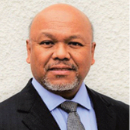 Dr. Colina is a distinguished figure in the field of dentistry in Manitoba, a dedicated community leader, and a proud advocate of Filipino heritage. With a career spanning over three decades, he has not only excelled in his profession but has also significantly contributed to the well-being of underserved communities through dental humanitarian missions and advocacy work. His journey from a young immigrant to becoming the first Filipino president of the Manitoba Dental Association is a testament to his resilience, commitment, and passion for service.
Dr. Colina is a distinguished figure in the field of dentistry in Manitoba, a dedicated community leader, and a proud advocate of Filipino heritage. With a career spanning over three decades, he has not only excelled in his profession but has also significantly contributed to the well-being of underserved communities through dental humanitarian missions and advocacy work. His journey from a young immigrant to becoming the first Filipino president of the Manitoba Dental Association is a testament to his resilience, commitment, and passion for service.
Born in Manila and raised in Marikina, Dr. Colina immigrated to Canada with his family in 1976 at the age of 11. The Colinas were among the first Filipino families to settle in Brandon, Manitoba, where they laid down roots in a new and unfamiliar country. His parents, Penticostes and Fe Colina, instilled in him the values of kindness, generosity, and the unwavering belief that education is the key to overcoming challenges and opening doors to opportunities.
Dr. Colina pursued his undergraduate studies at Brandon University from 1983 to 1985 before earning his Doctor of Dental Medicine (D.M.D.) degree from the University of Manitoba in 1989. His dedication to continuous learning led him to specialize further, completing a Master of Science in Orofacial Pain and Oral Medicine at the University of Southern California. He also achieved a Fellowship with the American Academy of Craniofacial Pain and became a Diplomate of the American Board of Dental Sleep Medicine.
A firm believer in the philosophy that teaching is the best way to learn, Dr. Colina has been a part-time faculty member at the Dr. Gerald Niznick College of Dentistry at the University of Manitoba since 2003. He plays a crucial role in the Temporomandibular Disorder and Sleep Disorder Clinics while also delivering lectures on Comprehensive Dentistry, Orofacial Pain, Oral Medicine, and Oral Pathology. His contributions have helped shape future generations of dental professionals.
Beyond his practice and teaching, Dr. Colina has been a driving force in making dental care accessible to those in need. He has served on several committees for the Manitoba Dental Association, including the Communications and Peer Review Committees. As the long-standing Chair of the Open Wide Clinic Organizing Committee, he has played a vital role in coordinating an initiative that provides a day of free dental care to individuals who cannot afford routine treatment, bridging the gap between professional expertise and community service.
Dr. Colina’s contributions extend far beyond the dental field. He has served as Project Manager for the Innovative Cultural Approaches in the Prevention of Elder Abuse program, a federally funded initiative under the New Horizons for Seniors Program. From 2011 to 2014, he chaired the Manitoba Ethnocultural Advisory and Advocacy Council, advocating for the needs of diverse communities and advising the provincial government on multicultural policies.
His deep-rooted commitment to service is also evident in his leadership roles within the Filipino Canadian community. As an active member of the Knights of Rizal, he played an instrumental role in renaming Keewatin Street to Dr. Jose Rizal Way, establishing Dr. Jose Rizal Park, and installing the Dr. Jose Rizal statue in Winnipeg –historic milestones that honour Filipino heritage in Canada.
One of Dr. Colina’s most profound contributions has been through dental humanitarian missions. He has led and participated in multiple mission trips to Peru, Guatemala, Zimbabwe, and the Philippines, bringing essential dental care to underserved communities. His 2014 mission to Ormoc, Philippines, following the devastation of Super Typhoon Haiyan (Yolanda), was particularly meaningful, as his team provided crucial dental relief and support to survivors rebuilding their lives. His most recent mission in 2024 continues this legacy of compassion and global outreach.
Throughout his illustrious career, Dr. Colina has achieved several historic firsts:
- The first Filipino to establish a private dental practice in Manitoba in 1993, later founding two additional clinics – Pearl Family Dental Care and Integral Dental.
- The first Filipino elected as President of the Manitoba Dental Association, breaking new ground for future leaders from diverse backgrounds.
- The first general dentist in Manitoba certified to provide Invisalign treatment, demonstrating his commitment to innovative patient care.
While his professional achievements are numerous, Dr. Colina finds balance and fulfillment in his personal life. He cherishes time spent at his lake cottage, where he enjoys fishing, foraging for mushrooms, and reflecting in the tranquility of nature. He is a devoted husband to Sharon and a loving father to Alana and Nicholas.
Dr. Tom Colina’s impact in dentistry, community service, and advocacy makes him a truly outstanding Filipino Canadian. His dedication to lifelong learning, compassionate care, and cultural pride embodies the best of the Filipino spirit in Canada. As he continues his journey, Dr. Colina looks forward to embracing new challenges, mentoring the next generation, and expanding his legacy of service to both the dental profession and the broader community.
Alvin Erasga Tolentino
 For the last 10 years, CFNet has followed the colorful and exciting career of Vancouver dance artist and choreographer Alvin Erasga Tolentino . CFNet first heard of Tolentino in 2016 during a performance called Tini(g)Tipon at the Scotiabank Dance Theatre in Vancouver. It was an uplifting evening where Filipinos, Canadian-Filipinos, and Canada's First Nations convened for a night of remembering and cultural exchange.
For the last 10 years, CFNet has followed the colorful and exciting career of Vancouver dance artist and choreographer Alvin Erasga Tolentino . CFNet first heard of Tolentino in 2016 during a performance called Tini(g)Tipon at the Scotiabank Dance Theatre in Vancouver. It was an uplifting evening where Filipinos, Canadian-Filipinos, and Canada's First Nations convened for a night of remembering and cultural exchange.
“Tini(g)Tipon” was a Filipino term coined by the show’s directors Dennis Gupa and Alvin Erasga Tolentino to capture the collective spirit of gathering voices from indigenous Filipinos and Canada’s aboriginals..
A culturally diverse country, the Philippines is home to an estimated 14-17 million Indigenous Peoples belonging to 110 ethno-linguistic groups, living in the country's mountains, forests, and coasts. Although they have their own land and culture, these groups often straddle the line between marginalization and poverty. For their part, First Nations communities in Canada also continue to be displaced, fighting for representation and for their voices to be heard. Although the groundwork is improving for these communities, much still lies ahead.
In May 2018, Tolentino once again took center stage as he wove the traditional Philippine malong into a modern Canadian dance. The traditional tubular malong commonly used in Southern Philippines became central in a stage flurry of imagery as the indigenous fabric is employed in contemporary dance to celebrate 2018 Asian Heritage Month in Vancouver.
Tolentino, artistic director and founder of the Vancouver-based dance company Co.ERASGA, partnered with Migrante B.C. in staging Tracing Malong/Guhit ng Ating Malong.
The Philippine-born Tolentino founded Co. ERASGA in 2000 with a mission to create and present contemporary works that feature national and international influences.
In another event that May, Tolentino’s Co.ERASGA company curated the music and dance presented at Night Shift: Magnetic Threads at the UBC Museum of Anthropology. The show explored human relationship with woven materials, which included the indigenous articles of clothing like the malong.
Tracing Malong/Guhit ng Malong was also presented at the Glad Tidings Church (3456 Fraser Street, Vancouver) on May 6.
In October 2019, CFNet wrote once again about Tolentino when he gathered diverse artists for a new dance presentation in Vancouver called Passages of Rhythms, an evening of “cross-disciplinary and cross-cultural collaboration about land and sustainability” featuring three different genres – Flamenco, Bharatanatyam, and voices for the body. It celebrated the contemporary body and interconnections with cultural rhythms and sounds.
Tolentino was the creative force behind Co.ERASGA, a Vancouver dance company that has earned an international reputation for its creative collaborations. Passages of Rhythms marked Co.ERASGA’s 19th year in dance performance and choreography.
On November 9-11 1, 2023 the dance company Co.ERASGA successfully held the world premier of Accumulation at Performance Works on Granville Island in Vancouver.
A profound meditation on over-consumption and climate change, Accumulation encouraged audiences to tackle environmental degradation all around and envision a sustainable future.
The performance is a collaboration between Co.ERASGA founder Alvin Tolentino (choreographer, performer), Emmanuel Mailly (composer, musician), Marc Gerenton (sculptor, visual artist), Meagan Woods (costume designer), and Tory Ip (light).
The mutuality among the artists extends to the acknowledgement of our interconnectedness in the face of climate crisis. “We are all in it together,” said Tolentino.
Accumulation, Tolentino added, is also a “profound message” to his kababayan both in Canada and the Philippines, who deal with the tragic consequences of climate change.
November 2023 marked the 10th anniversary of super typhoon Haiyan, which left widespread destruction and caused thousands of casualties in the Philippines. It was the inspiration behind the performance of Accumulation.
As for future projects, Tolentino said that in year 2025 , the dance company would create a full evening with works by three choreographers:himself, Alvin Collantes from Berlin, and Naishi Wang from Toronto. The show would address climate change with the working title of What on Earth? “For the next two years,” he said, “Co.ERASGA is dedicating work towards environmental stewardship.”
Karla Comanda
 Karla Comanda (they/she) is a poet, playwright, editor, translator, educator, and arts administrator. Her poems have appeared in Contemporary Verse 2, filling station, decomp, Poetry is Dead, Room Magazine, and others. She has taught writing workshops for the UBC Philippine Studies Series, Vancouver Public Library, Migrante BC, La Salle University - Ozamiz, Western Mindanao State University, Co.ERASGA, and other organizations and institutions.
Karla Comanda (they/she) is a poet, playwright, editor, translator, educator, and arts administrator. Her poems have appeared in Contemporary Verse 2, filling station, decomp, Poetry is Dead, Room Magazine, and others. She has taught writing workshops for the UBC Philippine Studies Series, Vancouver Public Library, Migrante BC, La Salle University - Ozamiz, Western Mindanao State University, Co.ERASGA, and other organizations and institutions.
Karla Comanda was the winner of the 2017 Jim Wong-Chu Emerging Writer Award in poetry. The announcement was made that year at the LiterASIAN Literary Festival held in Vancouver that September.
Born and raised in the Philippines, Comanda is the fiction editor of Ricepaper Magazine and was finishing a Masters in Fine Arts in Creative Writing at the University of British Columbia (UBC) at the time. She is the second Canadian Filipino to have won the award following Catherine Hernandez who won it in 2015 for her novel Scarborough.
Comanda’s winning collection of poetry Lots and Loss was borne out of her poetry thesis and work with UBC’s Creative Writing Program. Her work reveals complex layers of the Canadian Filipino immigrant experiences by exploring ethnic divisions, language, politics and religion.
In an interview with Room Magazine, Comanda relates, “As a writer myself, I struggled with what I considered to be my best work, holding it up against white standards, standards that have historically invalidated the experiences and styles of writers of colour.” She urges writers to “not be afraid to take risks and make your voice heard.”
The Award seeks submissions from Canadians of Asian heritage who have not been published, either self-published or traditional, in a book-length work in print or digital form. The manuscript is deliberated upon by a jury panel and considered for publication by an established publishing house.
In 2019, Karla hosted the Sinag-Araw Writing Workshop, a poetry workshop series created for Filipino youth in the diaspora.
In July 2022, Karla collaborated with two other playwrights (Christopher Nasaire and Marc Perez) to create a new theatre production titled buto-buto (literally bones are seeds) which celebrated the resilience of Canadian Filipinos in their adopted country.
The play ran for five sold-out nights, 27-31 July 2022, at the Russian Hall in Vancouver. The audience got a treat out of the 19 fragments aka vignettes that the three playwrights put together with the additional texts of Leonora Angeles, Eleanor Guerrero-Campbell, and Ted Angelo Ngkaion.
Jason Pires
 When Global BC morning news anchor Jason Pires gets up at 2:30 AM, it’s a culmination of over two decades of professional journalism and a constant reminder of the high work ethic instilled in him by his parents Ben andLaila, both alumni of the University of the Philippines. Pires anchors the daily Global News Morning from Monday to Friday.
When Global BC morning news anchor Jason Pires gets up at 2:30 AM, it’s a culmination of over two decades of professional journalism and a constant reminder of the high work ethic instilled in him by his parents Ben andLaila, both alumni of the University of the Philippines. Pires anchors the daily Global News Morning from Monday to Friday.
Jason tells Canadian Filipino Net that he would usually arrive at the Global News BC station in Burnaby before 4 AM. “From there it’s a non-stop routine - pouring over scripts prepared by our overnight writers and producers, writing promos for the show, applying the makeup to be “TV friendly,” changing from my sweats to a suit, grabbing a lemon tea – all before going on-air starting at 5 right until 9AM.”
The Canadian Filipino started his broadcast career on Vancouver Island’s CHEK TV in the ‘90s before moving to the former CTV Vancouver Island News to be its sports director and anchor/reporter. Moving to the Lower Mainland, Jason worked as Vancouver’s CTV Morning live for seven years before joining Global BC.
Of the many awards from Radio Television Digital News Association (RTDNA), Jason cites a particularly memorable story of a young man with cerebral palsy who, because of his condition, was subjected to bullying. “He overcame adversity by fulfilling his dream of becoming a sports reporter and covering the Vancouver Canucks,” says Jason of the young Dickson whose powerful story is one of resilience despite the odds.
Despite decades in the news business, Jason still gets personally affected by the stories he covers. At the height of the pandemic, a friend of his lost her young husband and father to her kids to Covid. “The anguish and sudden loss made for one of the most difficult interviews I’ve ever conducted,” Jason recalls. “That story has had a lasting impact on me, how precious life is and how short it can be.”
On being born and raised on Canadian soil as a child of immigrant parents, Jason credits his parents as a major influence in the growth of his career. He tells CFNet, “They not only instilled core values like high work ethic and determination but also stressed the importance of humility, empathy and to always be considerate and community-minded and to champion diversity.”
While Jason and his siblings did not feel crippling pressure from their parents to constantly excel, the importance of post-secondary education was nevertheless instilled in them. His brother is a lawyer while his younger sister is a doctor. Whatever paths the siblings chose to take, Ben and Laila encouraged them to be guided by their interests and passion.
Looking back, Jason recalls some “subconscious parental push” to work and study harder. For example, growing up during the summer, he and his siblings were discouraged from just watching TV or hanging out with friends all day. There would be swimming lessons and the occasional sport camp. During the school year, there would be sports (soccer) and other extracurricular activities like music lessons (banduria and ukelele) and folk dancing (tinikling and maglalatik) which his mom Laila taught.
Jason moved to Vancouver in 2008, a move that continues to be a career highlight for him. He describes it as “extremely exciting - as I was joining the CTV Vancouver team to help cover the 2010 Winter Olympics.” He had always liked big cities like New York City where he interned in 1999. “So to finally work full time in Vancouver was a long-time coming.”
Jason and wife Anita live in Vancouver’s Olympic Village with their labradoodle Rosie. Both Jason and Anita grew up on Vancouver Island and met in the ‘90s while working at a restaurant in Victoria. Jason muses, “She was a server and I was her busboy! I had a big crush on her but, at that time, she already had a boyfriend.” Thanks to social media, they reconnected in 2015 and married in 2019.
On days off and any free time, Jason keeps an active lifestyle - hitting the gym, running the seawall and coaching youth soccer (his nephew’s team). Downtime includes family time, watching Canucks games (he’s a self-confessed “long suffering fan”) and of course, catching up on sleep.
These days, Jason’s heart is full but he’s not resting on his laurels - not just yet. Jason shares with CFNet, “After 25 years in broadcasting, I still very much love what I get to do for work. I’ve never considered it a job.” In an evolving industry that is constantly challenged by misinformation, he is grateful to be part of Global BC in “sharing compelling stories that matter to British Columbians and reflecting what’s happening in our province.
Malaya Marcelino
 In June 1982, Malaya Marcelino’s parents, former Member of the Legislative Assembly (MLA), Flor Marcelino, and former Honourary Consul General for Manitoba, Orli Marcelino, immigrated to Canada with two of their five children. Raised in a family dedicated to public service, Marcelino developed a strong sense of duty and commitment. She worked part-time as a business writer and researcher for an agribusiness firm, which led her to be the MLA for Notre Dame in 2019. Marcelino’s readiness to improve the constituency challenged her since it is considered to have some of Canada’s poorest neighbourhoods. However, when push comes to shove, Marcelino has rose to the occasion on many accounts as an MLA and a Minister for the Province of Manitoba.
In June 1982, Malaya Marcelino’s parents, former Member of the Legislative Assembly (MLA), Flor Marcelino, and former Honourary Consul General for Manitoba, Orli Marcelino, immigrated to Canada with two of their five children. Raised in a family dedicated to public service, Marcelino developed a strong sense of duty and commitment. She worked part-time as a business writer and researcher for an agribusiness firm, which led her to be the MLA for Notre Dame in 2019. Marcelino’s readiness to improve the constituency challenged her since it is considered to have some of Canada’s poorest neighbourhoods. However, when push comes to shove, Marcelino has rose to the occasion on many accounts as an MLA and a Minister for the Province of Manitoba.
As an MLA, Malaya Marcelino has prioritized initiatives that directly impact the well-being of her constituents. Her focus has been on cleanliness, safety, and free-to-low-cost recreational activities, which were raised by the people she represents. One of her most notable initiatives is the Notre Dame Powerline. An anonymous phone and text service that allows residents to report issues such as illegal dumping resulting to overflow. Improving neighbourhood security by identifying substandardized housing that has potential to have drug activity and/or vacant properties. While these issues may not always make headlines, they are critical to the daily lives of her constituents and led to improvements in her community.
Malaya Marcelino is keen on children and youth development. She is actively working with schools, community centres, and organizations such as the Boys & Girls Club, NorWest Coop, and Rossbrook House to create programs for children and youth. The accessible programs would be during after-school hours and during seasonal breaks, providing children and youths a safe and supportive environment. Although this project is in the works of being a permanent program for children and youths, Marcelino is heavily invested to advocate the stability and development of the up and rising generations.
As Manitoba’s Minister of Labour and Immigration, Marcelino has taken on significant challenges, particularly in light of recent shifts in federal immigration policy. Over the past year, changes to Canada’s immigration system have led to the announcement that provincial nominee allocations will be reduced by 50% in 2025. Despite these obstacles, Marcelino has remained steadfast in her commitment to Manitoba’s immigration program, viewing it as a vital tool for economic growth and community development.
One of her key achievements was securing Manitoba’s 2024 provincial nominee allocation, after the province fell short of its target in 2023. Marcelino also played a pivotal role in designing a temporary public policy that facilitates work permits for prospective nominee program candidates. This ensures that skilled workers can contribute to the province’s economy. Additionally, Marcelino has worked closely with Internationally Educated Nurses and International Medical Graduates, helping them navigate pathways to employment in Canada’s healthcare sector. By addressing barriers to credential recognition and employment, Marcelino is ensuring that Manitoba benefits from the talents of skilled newcomers.
Despite the demanding role, Marcelino prioritizes time with her husband, two children, and extended family. She is also an active member of Manitoba’s Filipino community and regularly participates in many events and celebrations within the Filipino community, especially in the Month of June during Philippine Heritage Month. Marcelino’s involvement to the Filipino community expresses her pride and commitment to the community as well as shows how much joy and pride she has for being a Filipino-Canadian.
Malaya Marcelino’s resilience, determination and dedication as an MLA and Minister for the Province of Manitoba defines effective leadership, a trustworthy politician and an architect who patented, shaped and improved immigration pathways. Marcelino continues to set ambitious yet achievable goals in partnership with her constituents, entrepreneurs, workers, and families shaping Manitoba’s future. Her ability to navigate through impossible challenges is easily transformed to be a possibility through hard work and being open to all ideas that is presented. Marcelino is genuinely modest and analytically detailed oriented in all she does for the Notre Dame constituency and for her ministerial work in labour and immigration, which makes her a force to be reckoned with in both sectors and will continue for years to come.
Ted Alcuitas
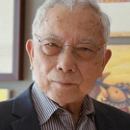 For almost a half century, Teodoro “Ted” Alcuitas has been writing and sharing stories about Filipinos in Canada. Now 85, the Vancouver-based publisher and editor originally from the Philippines is telling his own story in Magdaragat: An Anthology of Filipino-Canadian Writing, which he co-edited with author C.E. Gatchalian and poet Patria Rivera.
For almost a half century, Teodoro “Ted” Alcuitas has been writing and sharing stories about Filipinos in Canada. Now 85, the Vancouver-based publisher and editor originally from the Philippines is telling his own story in Magdaragat: An Anthology of Filipino-Canadian Writing, which he co-edited with author C.E. Gatchalian and poet Patria Rivera.
As the anthology published by Cormorant Books explains, Magdaragat is Filipino word for “mariner” or “seafare.r”
“The title alludes to our experience of being ‘voyageurs of the sea’ - being travellers from our small rivers to the vast oceans of other lands, albeit not by ship in all cases but mostly transported by modern means of transportation,” Alcuitas states in the interview with CFNet, referring to the Filipino diaspora.
“Personally my life has been like the ocean; it seems to be in constant flux - from the Philippines to Saskatoon in 1968 with my wife and eight-month old baby and then to Winnipeg where I started ‘Silangan’,” Alcuitas recalls in the interview.
Silangan, which translates to “east”, came out in February 1976. “There were no Filipino newspapers in Canada at the time,” Alcuitas wrote in his piece for Magdaragat. Educated as an architect in the Philippines, Alcuitas did not have a journalism background when he ventured into publishing.
Initially focused on the Winnipeg community, Silangan eventually expanded its reach, becoming a national Filipino Canadian paper. He sold the paper, and the last edition of Silangan came out in July 1982. He went on to publish another paper in Winnipeg named Kalayaan, which means “freedom”. It came out in February 1983. “The paper became a magazine, and I named it Mosaik to reflect the diversity of the city.
In 1992, Alcuitas and his family moved to the West Coast and settled in Vancouver. In his new city, Alcuitas wrote for the Philippine Chronicle published by Boding and Erly Juatco. “When the paper changed ownership, I became its new editor until it folded.
“I then moved to Philippine Asian News Today (PNT), published by Rey Fortaleza in 2009 as the Senior Editor, until December 2014 when I started my own online paper: philippinecanadiannews.com.” He continues to publish it to this day.
Joy Lazo
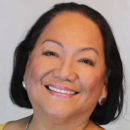 On August 15, 2024, Joy Lazo became the first Filipino Canadian In Winnipeg to be inducted onto the Rainbow Stage’s Wall of Fame in the Builders’ category. Lazo was one of five inductees honoured during a ceremony attended by friends, family, and Rainbow Stage executives.
On August 15, 2024, Joy Lazo became the first Filipino Canadian In Winnipeg to be inducted onto the Rainbow Stage’s Wall of Fame in the Builders’ category. Lazo was one of five inductees honoured during a ceremony attended by friends, family, and Rainbow Stage executives.
“I am deeply humbled and profoundly grateful to be inducted onto the Rainbow Stage Wall of Fame as a Community Builder. As the first Filipino Canadian to receive this prestigious recognition, it is both a personal honour and a significant milestone for our community. Throughout my life, I have been committed to inspiring and being a role model for our young talents and future builders. I want them to know that there is always a place for them in the mainstream arts if they commit to their craft – by honing their gifts, recognizing their worth, embracing their heritage, and fearlessly pursuing their dreams,” said Lazo during her Pilipino Express interview.
Lazo’s involvement with Rainbow Stage dates back to 1994 when she auditioned and became a performer for Winnipeg’s longest-running outdoor musical theatre. Her first performance was in Damn Yankees. In 1997, she landed the coveted role of Bloody Mary in the musical South Pacific. This role led to opportunities in film, including a role in High Life, a movie produced for the Sundance Film Festival, followed by roles in two other films directed by Garry Yates. Later, she portrayed Lady Thiang in Rainbow Stage’s 2004 summer production of The King and I.
As a member of Rainbow Stage’s Board of Directors and Chairperson of the Production Committee, Lazo continues to contribute significantly to the community, recently starring in Ma-Buhay! A New Musical, which premiered in June 2024. Her performance in the production was outstanding, earning praise for her powerful portrayal and bringing depth and authenticity to her role.
Beyond her stage performances, Lazo has directed numerous productions, including The Passage for St. Peter’s Church, A Miracle on Main Street for Siloam Mission, and A Million Dreams fundraiser for ANCOP. She has also produced community-centered performances like Celebrate Jesus for St. Edward’s Church and the Building Together fundraiser for the Philippine Canadian Centre of Manitoba (PCCM) at the Centennial Concert Hall.
Lazo’s accomplishments have been recognized with several awards, including The EVIES Winnipeg Theatre Educator Award in 2021 and the Pinays Manitoba Trailblazer Award for Performing Arts and Community Service in 2018. She is also a recipient of the Queen Elizabeth II Golden and Diamond Jubilee Medals for Volunteerism. Lazo is a founding member of Pinays Manitoba, a Filipino women’s organization dedicated to empowering Filipino women, and she is a long-standing member of the Philippine Heritage Council of Manitoba. From 2000 to 2004, she coordinated various fundraisers for the PCCM.
Lazo is happily married to Ramon, and they are the proud parents of three adult children and doting grandparents to three grandchildren. A highly respected voice coach in Winnipeg, Lazo has mentored students who have gone on to pursue careers in the performing arts.
Rainbow Stage established its Wall of Fame in 2004 to permanently honour individuals who have significantly influenced the company over the years. The Wall of Fame Builders’ award is given to those who have spearheaded fundraising or administrative efforts, ensuring the company’s survival and growth. Other categories include Performers, Musicians, Creative, Technical Crew, Volunteers, and Administrators.
Lucas Sugui
 In May 2024 Canadian Filipino Lucas Sugui III, a Grade 11 student of Killarney Secondary School in Vancouver, B.C., won a regional award in Canada’s Ingenious+ Youth Innovation Challenge for his innovation project, "Paia," under the climate change and environment category, which now qualified him to participate in the national competition taking place during Canadian Innovation Week.
In May 2024 Canadian Filipino Lucas Sugui III, a Grade 11 student of Killarney Secondary School in Vancouver, B.C., won a regional award in Canada’s Ingenious+ Youth Innovation Challenge for his innovation project, "Paia," under the climate change and environment category, which now qualified him to participate in the national competition taking place during Canadian Innovation Week.
Lucas and classmates Wynn Ho and Aidan Chan co-developed “Paia”, a website that empowers individuals to report dirty streets and public places while also providing a platform for them to notify when clean-ups have been conducted. The website gives a real-time outlook on the cleanliness of communities.
Philippine Consul General Arlene Magno received Lucas, together with his mother, at the Consulate and commended him for his innovative spirit and dedication to environmental causes. Lucas shared with CFNet interviewer that he wants to encourage others to take action and make a positive difference in our environment.
The Ingenious+ Youth Innovation Challenge, a program of the Rideau Hall Foundation, offers youth aged 14 to 18 the opportunity to innovate and share their strategies to address problems at home, across Canada, and around the world. It encourages innovation, whether through enhancing existing products, services, or processes, or creating entirely new solutions to address societal issues. It helps young innovators get the motivation and support they need to take their projects to the next level.
As regional awards winners, Lucas and friends received a cash prize of $1,000 to develop, improve or implement the submitted innovation, an opportunity to attend virtual group learning and mentorship sessions and a chance to move on to the National Awards and receive $10,000.
Patrick de Belen
 Patrick de Belen calls Toronto home, but he might as well be standing on a soapbox somewhere in the heart of Manila and calling out, in rap, the wrongs in government.
Patrick de Belen calls Toronto home, but he might as well be standing on a soapbox somewhere in the heart of Manila and calling out, in rap, the wrongs in government.
Like he did back in October 2016 here in Canada during the elections when he spoke to the youth about their voice and their “chance to speak and say something too” because “not everyone has one.” CBC News picked up the video and Canada took notice.
Canadian Filipino Net (CFNet) asked why the spoken word “Raise your voice above the noise” resonated with Canadian youth. “I think it resonated with them because the poem itself was written about fear, skepticism and hope in our government,” de Belen explained. “I think that’s a pretty relatable viewpoint.”
CBC Arts also picked up another piece of de Belen’s in 2017 wherein he criticized racist policies both here and in the US, sharing his parents’ experience of being told to “go back to their home land.”
The Canadian born son of immigrants from the Philippines, de Belen found his place growing up in music which he describes as his introduction into storytelling. He tells CFNet, “My dad did a good job of setting me up with an album collection I later built on. I learned about the spoken word in high school.”
De Belen’s passion for the spoken word is something he shares with his students and community. He is the director of Toronto’s only poetry slam for youth, “BAM! Toronto Youth Poetry Slam” and collaborates with the Toronto Public Library, Kapisanan Philippine Centre for Arts and Culture and many other community groups and institutions in programs designed to mentor young poets and writers. In 2019, he was awarded the title Poet of Honour by the Canadian Festival of Spoken Word.
De Belen’s work has been featured on CBC, TED, and Sportsnet (a TV commercial for the Toronto Raptors), among other platforms. In early August, World Vision Canada commissioned de Belen to produce a spoken word video Hidden Hero Spoken Word highlighting how the pandemic is changing the world.
He recently completed a multi-media project called In Between Lines: The Spoken Word Project. The project is made up of a spoken word album, animated videos, digital chapbook, tele-poem experience and writing challenges – all of which were generated via his social media platforms. Explaining the writing challenge portion of the project, de Belen said, “The writing challenge itself uses prompts I used to write the album. It is a community engagement project allowing folks to use these ideas as creative juice and submit whatever they create.”
Though he cites Canadian poet Dwayne Morgan as one of his mentors, de Belen turned fanboy when, on a visit to the Philippines, he happened to meet Filipino poet F. Sionil Jose in La Solidaridad, an independent bookstore in Manila. “I walked into a rant he was having with a Danish professor about Philippines' colonial mentality. It was interesting and I ate it all up,” De Belen recalls. “I bussed to that famous bookstore specifically to learn more about Filipino history and politics - so the timing was perfect. It was a brief meeting. But the fact that he came down on his birthday to greet me was something special. I don't think it's common for a diaspora Filipino to meet legends in the motherland. For that, I was very grateful.” De Belen later put together a piece in In Between Lines called “Unsacred” that was inspired by Sionil Jose’s Rosales Novels.
On the heels of In Between Lines is another video project that de Belen is working on, funded in part by Canada Council for the Arts. This time, the project dubbed Skateboarding and Spoken Word will feature black, Indigenous and people of colour (BIPOC) skateboarders and actors.
As an advocate for those whose voices need to be heard, de Belen will continue to make noise. When asked about governance and leadership in this time of the pandemic, he shared with CFNet, “I'm sure there are many wrongs I can point out - and many good choices too. Overall though, I think it's my duty as a fellow citizen to do what I can - and learn as much as I can.”
Second generation identities are often multiple and overlapping. But instead of treating their mixed culture/mixed identity trait as a liability, people with this dilemma can take pleasure to be in Canada these days, as this country styles itself as "post-national," welcoming immigrants, promoting tolerance, and embracing diversity even more.
Spoken word poet and arts educator Patrick de Belen summed this up beautifully in a recent Toronto Forum on Filipino Canadians: “I am a Filipino seed, yeah, but I am planted in Western soil— which means my branches may bear plenty of fruit, but my roots are subconsciously digging for oil.”
Esmie Gayo McLaren
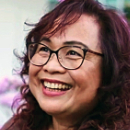 In 2021 community groups in North Vancouver banded together in response to a spate of anti-Asian graffiti that sprouted in the city’s Lower Lonsdale. Filipino Canadian artist Esmie Gayo McLaren was commissioned to provide a poster image with the message “Inspiring Connection and Friendship.”
In 2021 community groups in North Vancouver banded together in response to a spate of anti-Asian graffiti that sprouted in the city’s Lower Lonsdale. Filipino Canadian artist Esmie Gayo McLaren was commissioned to provide a poster image with the message “Inspiring Connection and Friendship.”
In an email to Canadian Filipino Net, McLaren reflected on her role as an artist to the community. “At the time, I was wondering what I could do to counter racially motivated hate crimes. I was very honoured to be invited to collaborate for this poster where my ideas for a positive approach were met gladly.” She commented that “racism, has turned violent again, this time against Asians.”
McLaren’s artwork Playful Blossoms “pays homage to children’s ability to easily accept others and forge friendship.” McLaren used energetic brushstrokes and soft spring colours which she hopes will “encourage connection with others and inspire friendship.”
Esmie is a Vancouver-based visual artist who paints scenes of everyday life using watercolor, acrylics, and oils through an emotive use of color and light.
In 2025 when Esmie’s father started showing signs of diminished sensual perceptions and arthritic hands while struggling with the challenges of dementia but still trying to engage with his family, environment, and sculpting hobbies, she saw not an old man but a healthy human being who is aging but still determined to use his faculties to accomplish his goals. Her father passed away in February 2024 at age 94, just 3 months short of 95.
Inspired by her father’s focus in creating a mythical animal from a piece of clay one fine day, she painted his portrait with an ethereal look about him which she observed and titled the portrait “Lifegiving.” The painting highlights her father’s countenance, expressing his diligence in an activity even as he aged. It portrays the softness in his eyes that marks his purpose, that of showing his love for his family for whom he creates.
This was the painting that Esmie submitted to the Healthy Aging Visual Art Contest sponsored jointly by the Edwin S.H. Leong Centre for Healthy Aging and the Djavad Mowafaghian Centre for Brain Health at UBC.
The goal of the contest was to feature diverse, authentic, anti ageist representations of human aging through visual art. Its concept of “healthy aging” is based on the WHO’s definition of it as “the process of developing and maintaining the functional ability that enables well being in older age. “ Functional ability is having the capabilities that enable people to be and do what they value. This definition does not require an older person to be free of diseases or health condition.
The contest received over 50 submissions which were reviewed by a panel of experts who awarded Esmie’s portrait of her father the grand prize at a ceremony held at UBC on January 10, 2025.
Riley Palanca, Montreal Playwright
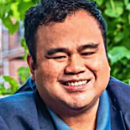 For literature buffs, Virginia Woolf (1882-1941) represents a powerful figure in modernist letters. The famed English novelist and essayist is best known for works such as Mrs. Dalloway, To the Lighthouse, Orlando, and A Room of One's Own.
For literature buffs, Virginia Woolf (1882-1941) represents a powerful figure in modernist letters. The famed English novelist and essayist is best known for works such as Mrs. Dalloway, To the Lighthouse, Orlando, and A Room of One's Own.
Her influence also informs a new work by Montreal-based playwright Riley Palanca, which carries the provocative title Would Virginia Woolf Contemplate Suicide if She Were Filipino?
Canadian Filipino Net reached out to Palanca to explain the reference to Woolf, and the artist provided two reasons.
“One is because she is a queer literary icon. Other queer writers, such as Edward Albee (Who's Afraid of Virginia Woolf) and Michael Cunningham (The Hours) have been inspired to create work about her,” Palanca said.
“Second is Woolf was one of the first writers to discuss how different personal identities interact with each other. Famously, Woolf posed the question, if William Shakespeare had a female sister who was in every way as intelligent and incisive as he was, would she have received the same amount of success? This questioning of the intersections of one's identity is echoed in our play,” Palanca continued.
One may wonder what Would Virginia Woolf Contemplate Suicide if She Were Filipino is all about.
“At its core, this play is about a relationship. How can we navigate interactions with other people, how do we communicate effectively, set up boundaries, establish relations, argue, etc.,” Palanca said.
“I hope the play becomes a talking point for how we can fully self-actualize as social beings. With that said, we are very proud of how Pinoy this play is. Everything from the actors to the story to the jokes are rooted in Philippines culture,” Palanca noted.
So what impelled Palanca to write such a play?
“As a Filipino immigrant, I was very curious about the experience of a Filipino born in Canada. I wanted to explore the differences and similarities between my experiences and those of a second-generation Filipino,” the artist said.
“I wanted to take talking points on gender, race, and class, and let them clash, and putting it in the context of a hook-up allowed us to explore different facets of our vulnerabilities,” Palanca added.
Would Virginia Woolf Contemplate Suicide if She Were Filipino is a one-act play that tackles issues of intimacy, sexuality, and race through the eyes of two Filipinos in Montreal.
A media release noted that through the support of the Canada Council for the Arts, the play had its premiere at the 2022 Montreal Fringe Festival where it won the Playwrights Guild of Canada award for “Most Promising English Text”.
Also, the play was runner-up for BroadwayWorld Montreal’s “Best New Play or Musical.” Moreover, the work received an honourable mention at Infinitheatre’s Write-on-Q Competition, and a subsequent reading at the 2022 Pipeline Festival.
The play was presented in Ottawa in February 2023 as an official selection for the 2023 undercurrents Festival. Held at the historic Arts Court Theatre, undercurrents is Ottawa Fringe’s curated winter festival showcasing contemporary theatre created by local, national, and international artists.
The script was written by Palanca under the name Revan Badingham III. Dennis Gupa directed the play was performed by Mark Hrynioch and Marc Ducusin. Shane Nichol managed the stages. Photography is by Oyie Olivar. Joanna Malinis designed the poster announcing the play.
Playwright Riley Palanca’s debut on Canadian stage happened in June 2016 when the 26-year-old playwright, who immigrated from the Philippines in 2013, had his first full-length production staged in St. John’s, the capital of Newfoundland and Labrador. His Beats Around the Bush, a tale of complicated relationships set in Manila, played there for three nights and received excellent review from arts writer Gloria Hickey of The Telegram, a St. John’s paper.
Palanca studied theatre and creative writing in the University of the Philippines. He shared with Canadian Filipino Net that Beats Around the Bush is basically a “love story”. It explores the lives of four gay couples, Beats Around the Bush opened days after the Orlando massacre. In that incident, a gunman killed 49 people and wounded 53 others inside a gay nightclub in Florida.
“We wanted to forward narratives that were outside the traditional queer scope, such as the typical coming out of the closet story or even the social inequity and discrimination tropes,” Palanca said. He also said that the play was staged in an unconventional performance space.
“We were really trying to go for more of a cutting-edge, non-traditional feel so instead of using conventional theatre spaces, we collaborated with the Factory, an artist-oriented bar downtown,” Palanca said. “To be surrounded by art and to be the first play that showed in that space was an amazing experience.”
Palanca also disclosed that he’s working on a script about the Maguindanao massacre, a 2009 incident in southern Philippines when 58 people, including 32 media practitioners, were killed. “We have no scheduled show dates yet,” Palanca said. “In the meanwhile, I am moving from Newfoundland to Montreal and I am looking to get my previous works staged on the Quebec stage. Of course, Beats is a priority.”


